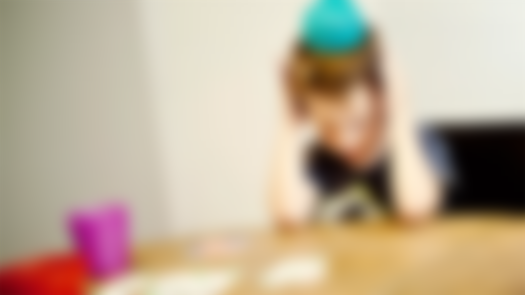As parents we always try to educate our children in the best way, we are always criticizing their behavior or making comparisons that generates in the child a certain insecurity that he will later show in his adult stage. As I will explain later, you will understand how these criticisms affect and I will give you some tips to know how to express these criticisms.
What we learn and are taught in our childhood will mark in our adolescence and adulthood, the insecurity or lack of self-esteem that we present in these stages is the product of our human development. That is why education and the type of relationship that we establish as children with adults and the environment are of great importance for us to establish better relationships and know how to adapt to the environment that surrounds them.

It is very important to understand that as adults we are guides for our children, whether we are parents, grandparents, uncles or other relatives. The communication that must exist must be respectful by both parties, since the way in which they relate to each other will have a great impact on the image that the little ones form of themselves and their self-esteem.
These relationships will also be relevant in the way these children, as adults, face life. These relationships in many cases imply criticism of the behaviors that children can have in different situations and as children, in the end, they do not know how to react, so how do criticism affect them? How can these criticisms be dangerous?
What happens to children when they are criticized?
When we are parents we want our children to be almost perfect and that is why we are always regulating their behavior, their expressions, their behaviors, this is sometimes done with the best intentions, however, constant criticism weakens the children's self-esteem, since.

At the moment they are constantly criticized, children believe that everything they do is wrong and no matter how hard they try they will not be able to become as their parents wish, this makes them feel misunderstood, sometimes with acts of rebellion, they are not safe And when those criticisms come from the hand of comparisons, “you cannot be equal to…”, it creates even more chaos in the emotional state of infants.
This emotional chaos affects children in the brain, so they choose to "disconnect" they still cannot understand and "refine" that it is for their good, because they do not see the long term to which their parents refer. This chaos makes them feel uncomfortable or anxious. When children are constantly subjected to criticism, they often avoid paying attention and become "rebels without cause."

The brain of children has not yet been fully developed, and is not referred to the organ, but to its emotional functions.In this case, these criticisms can be very disturbing and dangerous, since constant criticism in childhood can incapacitate it in the emotional processing, which is essential for social relationships.
What consequences does it generate when children are constantly criticized?
There are two types of criticism: constructive and destructive. However, one must be careful with the so-called "constructive criticism" since if they are abused it can become "destructive". The constant use of destructive or constructive criticism turns parents into "toxic", since they end up causing emotional damage that can generate in:
Low self-esteem: constant criticism does not help, the only thing that generates this is that the child feels sad, angry and insecure, this will have consequences in their adolescence and adulthood, since they will have problems relating to others.

Negativity: when growing up in an environment in which he has always been criticized, he sees that everything external is wrong and he cannot trust others, this makes him distrustful, authoritarian, ill-thought, unfair, etc.
Anxiety and fear: if the child has grown up under criticism, this has generated great states of anxiety and fear, above all, this generates low self-esteem. This pattern can be seen at a very early age when the child does not try hard enough to get good grades, feels incapable or inferior to others, etc.
So, are they not criticized? What to do destructive criticism vs. Constructive criticism?
Previously, we talked about the damage of destructive criticism, and that if it is not taken with "tweezers" it can cause discomfort in the infant, if there is no destructive criticism, then, cannot the child's behavior be redirected? It can be done through constructive criticism, taking into consideration that we cannot abuse them either.

Constructive criticism will allow the child to advance in her development, but they must always be expressed with caution, so that this type of “appreciation” (criticism) really helps the child, it must be taken into consideration that:
Be focused on providing solutions: if it is a fault or fault that the child committed, it should not be emphasized, but rather must go further and explain to the child why and propose that they choose different solutions. Make them understand why, rather than the action itself.
Do not label: we always make comparisons and label behavior, expressions such as "you are no good", "you are a failure", "you are lazy", "you do not deserve", "x is better", instead of encouraging them what does is undermine their confidence, so we must eliminate these expressions when enunciating them.

Being "one of lime and another of sand": you should not always focus on the negative, but rather the positive of infants should be highlighted, perhaps he is not an ace at school, but he is an ace in sports or vice versa. You should always highlight positive traits, that will make adults safer.
Do not hypothesize: when making criticisms, try not to be upset, try to see the whole and not a single part of the situation. You can't be so blunt. At the end of the day there is a large scale of gray. You must maintain a cool, measured attitude.
It is very important to know our children, see their behavior and locate the moment and the best words to make our "appreciations" more than criticism, especially we must be careful when "others" try to make "criticisms", especially if those others are found in our family circle.
Main image source: https://parenting.firstcry.com/








This is so true. Constant criticism affects the self esteem of children